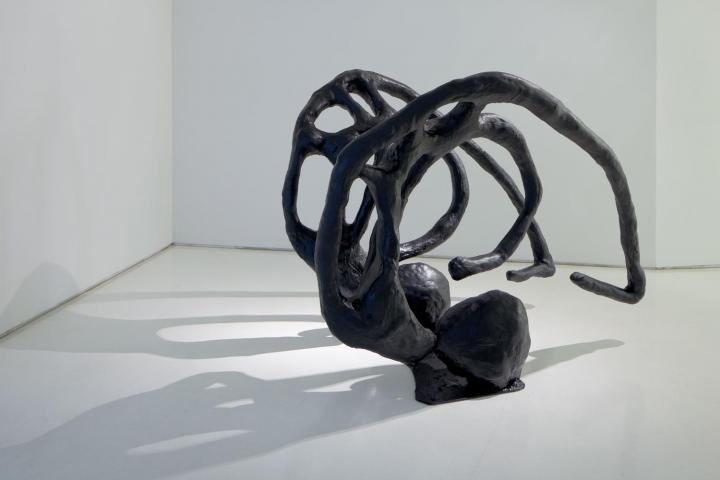
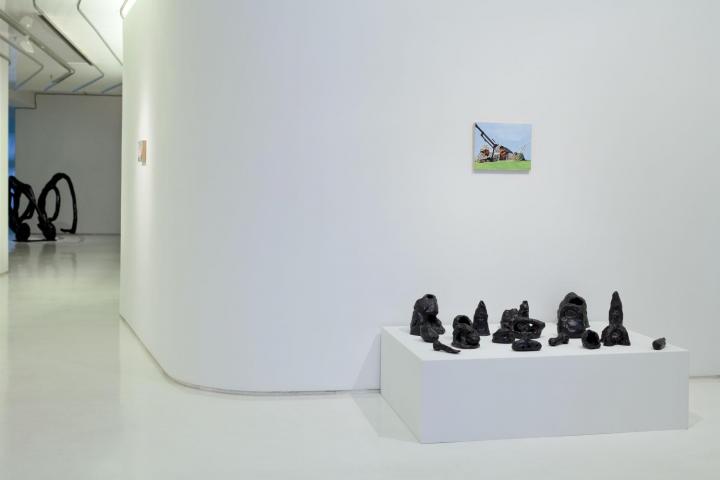
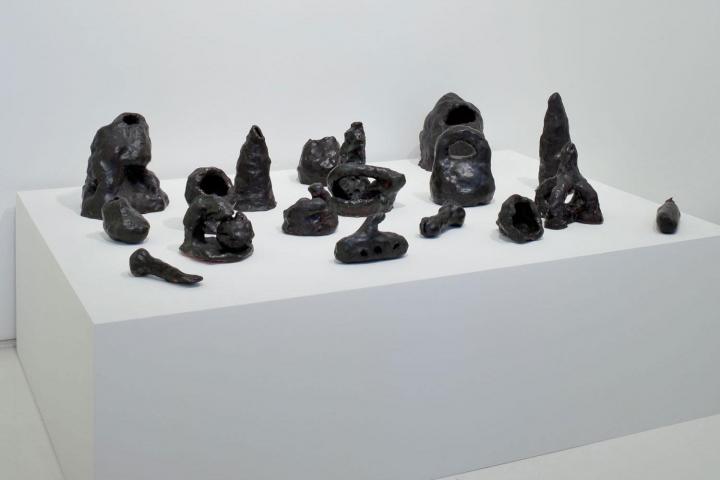
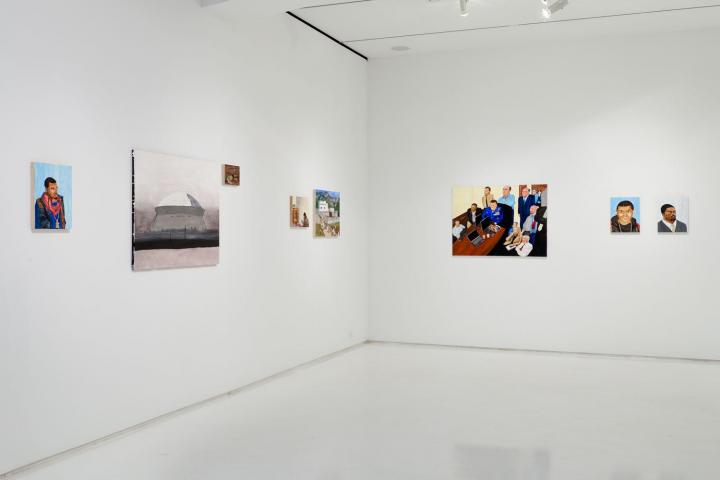
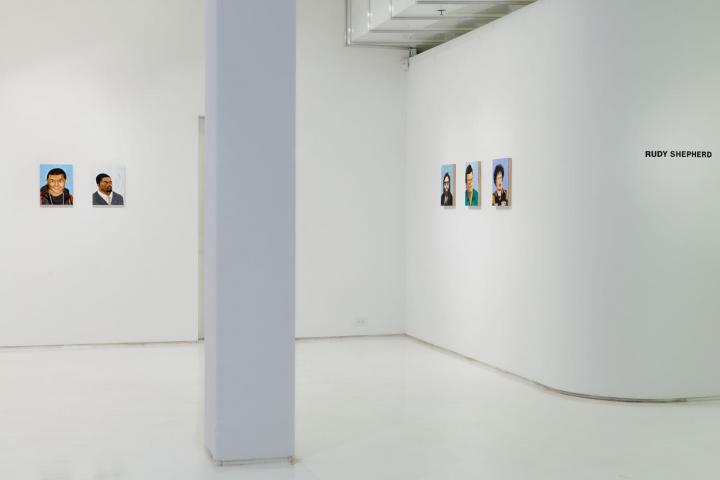
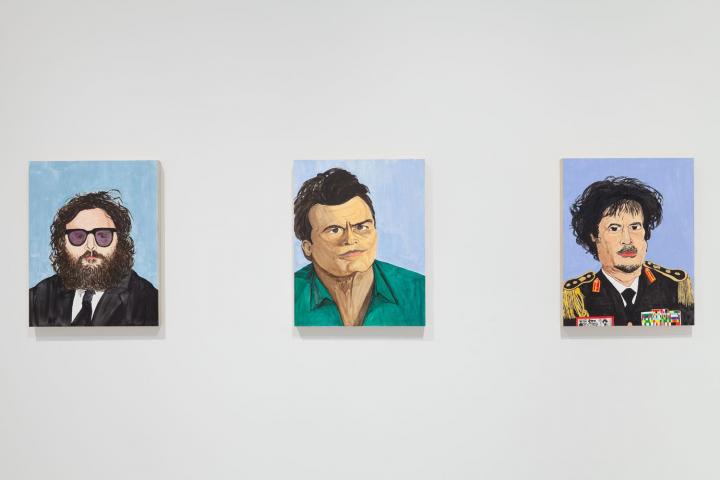
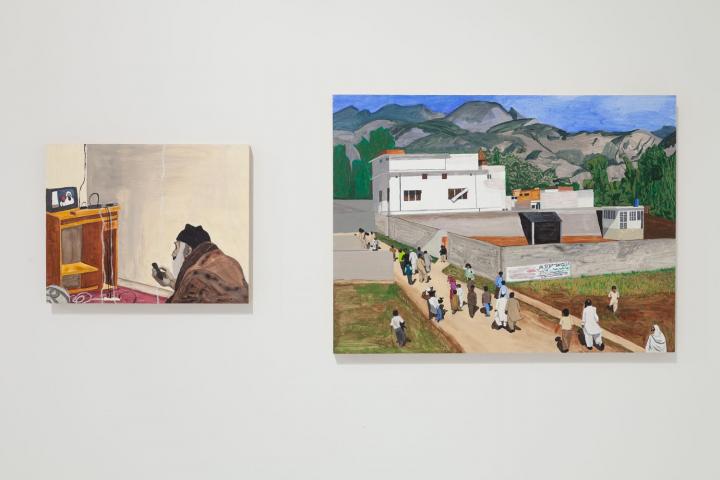
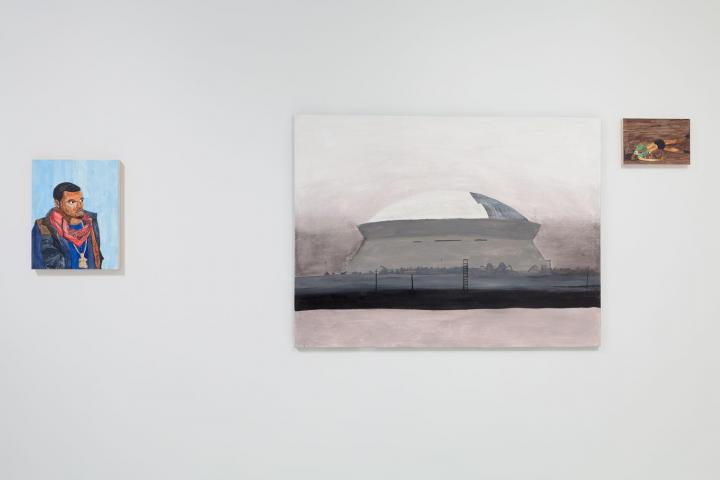
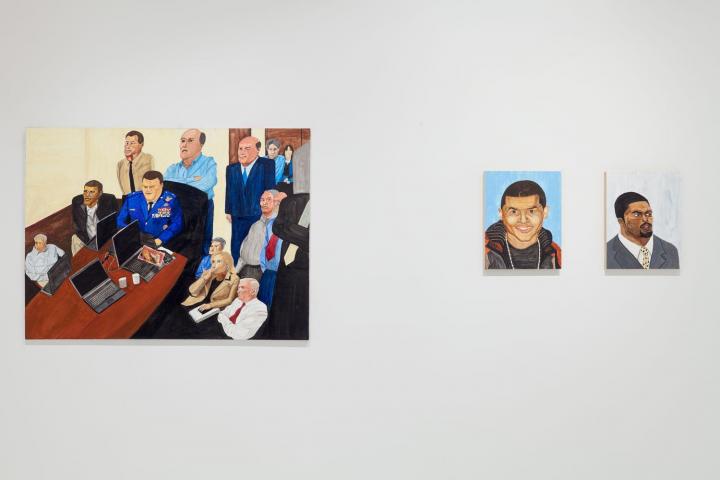
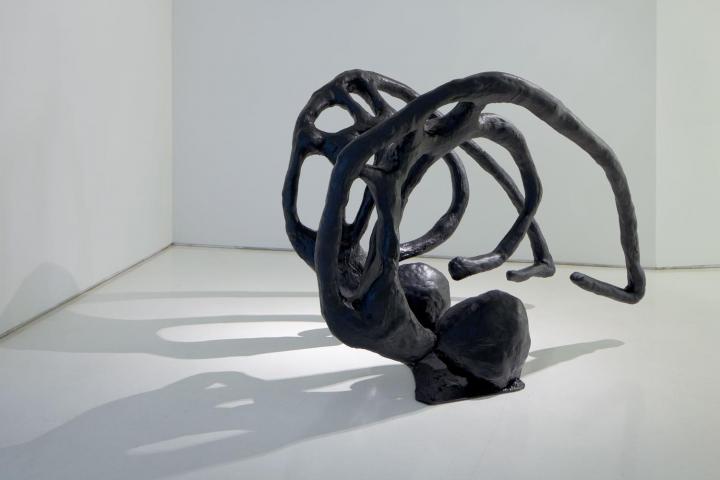
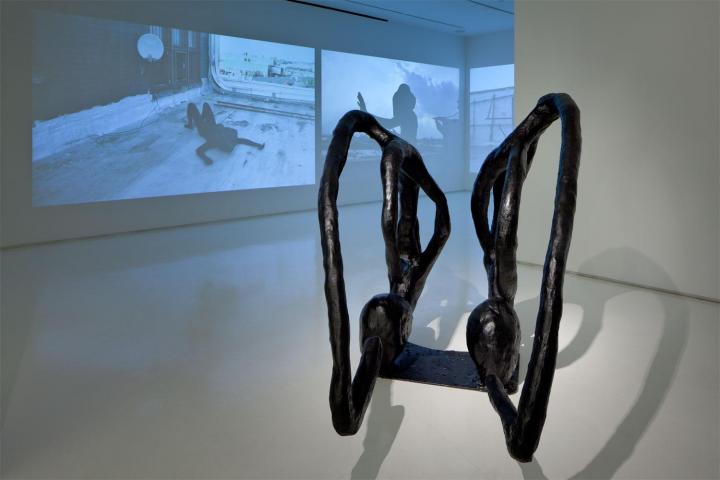
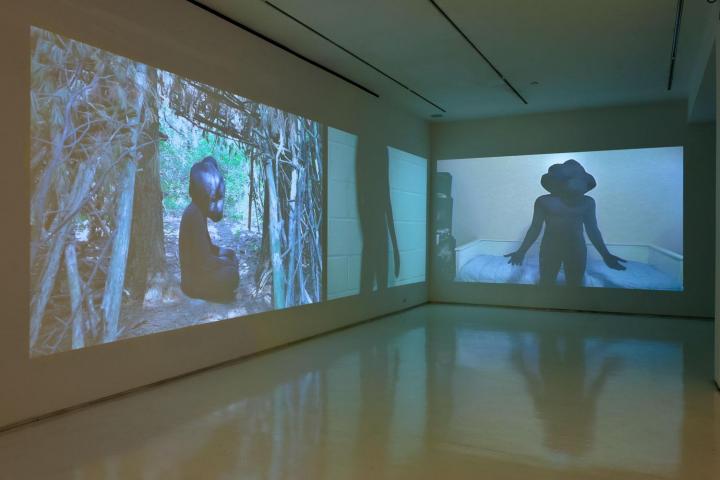
PAST EXHIBITION
Rudy Shepherd
Psychic Death
Mixed Greens is pleased to present Rudy Shepherd’s fifth solo exhibition with the gallery. Psychic Death will consist of new painting, video, and sculpture.
In recent years, Rudy Shepherd used his work to examine and challenge the binary of good and evil, and to investigate the politics of representation. He took great care re-presenting those who had been demonized, sensationalized, and overlooked by mass media. His latest series of paintings also uses images from the news as source material, but these photographs were chosen because they demonstrate an even more complex underlying visual vocabulary. Examples include documentation of Hurricane Katrina’s wake of devastation, the Columbine shooting aftermath, and the White House Situation Room during the assassination of Osama bin Laden. From the execution of his paintings, it is clear that Shepherd is struck by the emotive nature of mass media images and he is interested in the moments when a stereotype, a title, or an assumption is shown to be wholly inadequate.
For the exhibition, Shepherd also created a video featuring a character he calls The Healer—a shadowy figure inhabiting the interstices of good and evil, public and private, seen and unseen. The Healer is born out of the concept for Shepherd’s Black Rock Negative Energy Absorber sculptures, which are intended to absorb the world’s negative energy. The Healer moves through the landscape and the home, barely visible. Neither fully engaged nor detached, The Healer leads us to contemplate liminal spaces. To emphasize a lack of narrative resolution, Shepherd developed a computer program, in collaboration with Ian Brill, to randomly sort the scenes. The result is a never-ending series of contemplations with no beginning or end. The Healer serves as a self-portrait in which Shepherd explores his own feelings of social and political frustration, isolation, and impotence.
Finally, sculpture completes the exhibition. Both small-scale ceramic sculptures and a large-scale depiction of the brain’s limbic system appear as artifacts from a distant past or distant future. Relics from another time and place, newly envisioned negative energy absorber sculptures, tools, or hints of a scientific investigation, they sit on a low pedestal as one unit. In juxtaposition, a sculpture of the limbic system looms large. This system is said to translate thoughts and emotions into physical responses. Shepherd reflects on this incredible function while working across all media.
Rudy Shepherd received his BFA from Wake Forest University and his MFA from the School of the Art Institute of Chicago. He has had solo exhibitions at Carnegie Mellon University, Pittsburgh, PA; Mixed Greens, NYC; Location One, NYC; and Wake Forest University, Winston-Salem, NC. His group show venues include the Studio Museum in Harlem; The Warehouse Gallery, Syracuse, NY; Triple Candie, NYC; the Swiss Institute, NYC; PS1 Contemporary Art Center, Long Island City, NY; the Contemporary Museum, Baltimore, MD; the Bronx Museum of Art, NYC; the Queens Museum of Art, NYC; Flux Factory, Long Island City, NY; and Analix Forever, Geneva, Switzerland. He received a fellowship from Socrates Sculpture Park and was an artist in residence at the PS1 International Studio Program and the Jacob Lawrence Institute for the Visual Arts. He splits his time between NYC and State College, PA.
Special thanks to:
Penn State Institute for the Arts and Humanities, and William J. Doan, College of Arts and Architecture's associate dean for administration, research and graduate studies.
For more information, please visit rudyshepherd.com
Download Press Release
















